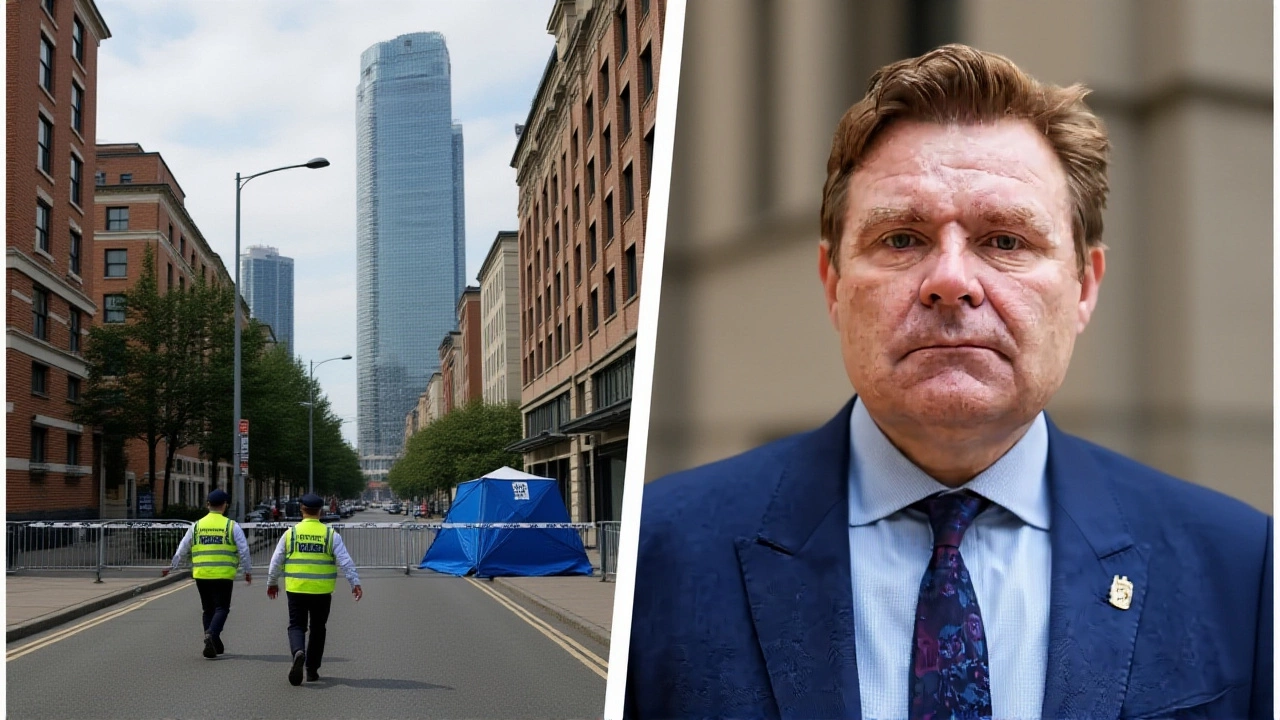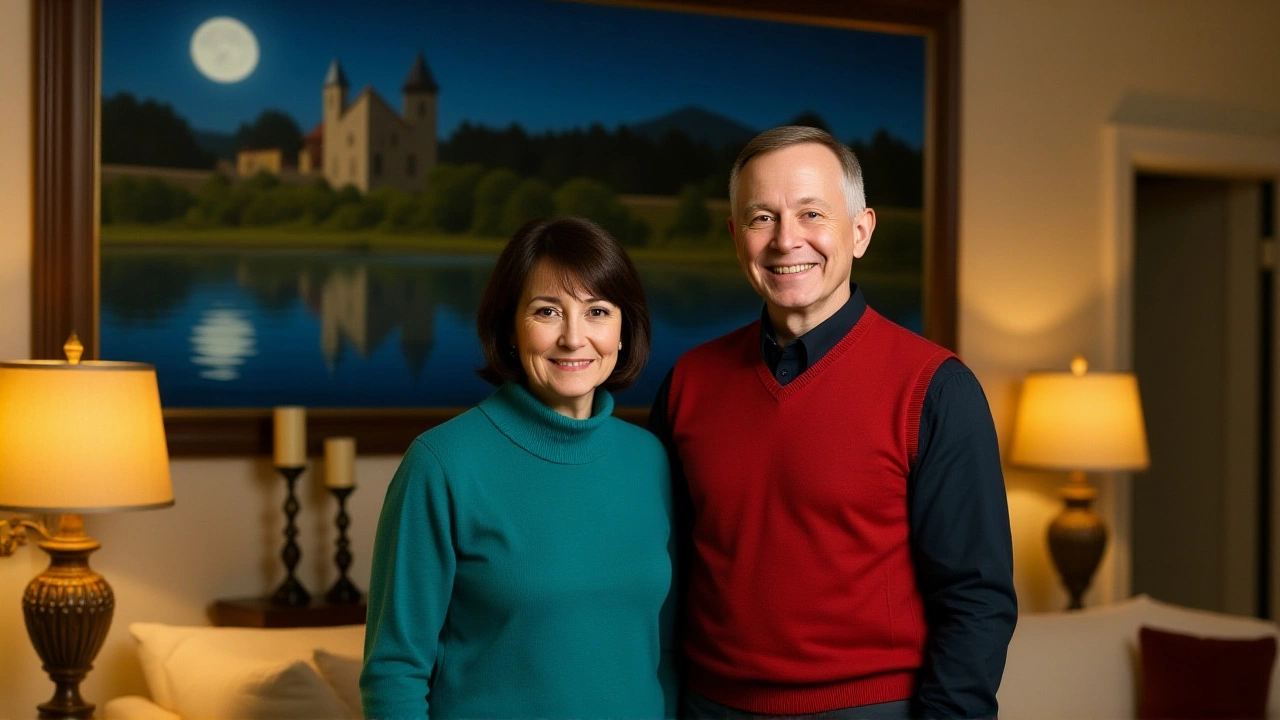When Steve Fox was diagnosed with stage 4 tongue and neck cancer in 2001, he had to leave El Paso—drive hours, sleep in hotels, miss work, leave his family behind—to get treatment. More than two decades later, he’s not just alive; he’s building a future where no one else in the Borderplex has to do the same. On August 8, 2023, Fox, his wife Nancy Fox, and their daughters Paige Fox and Ashley Fox announced a $25 million gift to Texas Tech University Health Sciences Center El Paso—the largest single donation in its history—to create the Steve and Nancy Fox Cancer Center. The facility, set to rise on the university’s campus, will be El Paso’s first comprehensive cancer center, ending a decades-long reliance on distant hospitals in Dallas, Albuquerque, or even Mexico City.
Why This Gift Changes Everything
It’s not just about bricks and machines. It’s about dignity. Steve Fox, president and CEO of Fox Auto Team, remembers the exhaustion of traveling for treatment. "You can’t put a dollar sign on being in your own bed with your wife and children," he said during the August 8 announcement. For families in the Borderplex—where median household income hovers around $50,000 and nearly 30% live below the poverty line—traveling for care isn’t just inconvenient; it’s financially devastating. Many patients delay treatment, or skip it entirely, because they can’t afford the gas, the hotels, the lost wages. The Fox Cancer Center changes that.
The $25 million isn’t just for construction. It’s earmarked for clinical trials, cutting-edge research, and recruiting top-tier oncologists, nurses, and scientists who might otherwise choose bigger cities. The center will consolidate outpatient services—imaging, chemotherapy, radiation, genetic counseling—under one roof, reducing patient stress and improving coordination. And critically, it’s designed to serve not just El Paso, but also Ciudad Juárez, Chihuahua, where access to advanced oncology care remains sparse.
A Personal Mission Turned Public Legacy
Steve Fox’s journey from patient to philanthropist is the heartbeat of this project. Diagnosed in 2001, he beat stage 4 cancer. As of 2024, he’s in his 23rd year of remission. But his survival came at a cost—emotional, financial, familial. "What you want is the best possible outcome," he told reporters. "And often, that wasn’t here."
His daughter Paige Fox put it bluntly: "Being able to have your cancer treatment here and your family united would just do wonders." That’s the emotional core of the center. Cancer doesn’t just attack the body—it fractures families. The Foxes want to keep those bonds intact.
The family’s commitment runs deep. Beyond this gift, Steve and Nancy serve on the boards of the Rio Grande Cancer Foundation and the Paso del Norte Health Foundation. They’ve also funded Proyecto Santo Nino, supporting children with special needs in Anapra—a reminder that their philanthropy isn’t transactional; it’s rooted in community.
Recognition and Momentum
The impact didn’t go unnoticed. On March 4, 2024, El Paso Inc. named the Fox family its "Persons of the Year" for their transformative gift. Two weeks later, on March 19, they were honored at the El Pasoan of the Year luncheon, where local leaders called their donation "a moral imperative fulfilled." The Paso del Norte Foundation echoed the sentiment, publicly congratulating the family on August 29, 2023—the date some outlets reported the announcement, adding to the confusion around timing.
Why the conflicting dates? Likely because the announcement unfolded in phases: internal board approval on August 8, public unveiling on August 14, and formal press release with foundation partners on August 29. The core truth remains: the gift was made, sealed, and announced in the summer of 2023.

What’s Next for the Borderplex
Construction is slated to begin in late 2024, with the center targeting a 2027 opening. Funding from the Fox family unlocks additional state and federal grants, including potential NIH support for cancer research in underserved regions. TTUHSC El Paso plans to partner with Mexican institutions to create a binational oncology network—a first for the region.
Experts say this could be a model. The Borderplex has over 2.5 million people, yet no comprehensive cancer center. The Foxes didn’t just fill a gap—they redefined what’s possible for a city often overlooked in national health discussions. "This isn’t charity," said Dr. Elena Mendoza, a TTUHSC oncologist. "It’s equity. They’re saying: ‘Your life matters here.’"
Steve Fox still gets emotional when he talks about his diagnosis. But now, he talks about hope. "I truly believe we’ll deliver world-class care," he said. "And not just for my family. For everyone’s."
Frequently Asked Questions
How will the Fox Cancer Center improve access for residents of Ciudad Juárez?
The center is designed as a binational resource, with plans to establish formal partnerships with hospitals in Ciudad Juárez to coordinate referrals, share diagnostic data, and even host joint clinical trials. Many Juárez residents already travel to El Paso for care—this center will streamline that process with bilingual staff, transportation assistance, and insurance navigation support, reducing barriers for cross-border patients.
What specific services will the Fox Cancer Center offer that aren’t available in El Paso today?
Currently, El Paso lacks integrated outpatient cancer care. The Fox Center will consolidate imaging (MRI, PET scans), chemotherapy, radiation therapy, genetic testing, palliative care, and clinical trial enrollment under one roof—something no local facility offers. It will also bring Phase I and II clinical trials to the region, giving patients access to experimental therapies typically only found in major academic centers like MD Anderson.
Why is this donation considered historic for TTUHSC El Paso?
The $25 million gift is the largest single donation in the university’s 35-year history. Previous major gifts for health initiatives hovered around $5–$10 million. This donation alone represents more than 15% of the university’s total philanthropic funding since its founding, and it’s the first to be dedicated entirely to cancer care infrastructure, research, and recruitment at scale.
How does Steve Fox’s personal experience shape the center’s design?
Fox’s own struggle with travel, isolation, and fragmented care directly influenced the center’s patient-centered layout. The design includes family lounges, on-site lodging for caregivers, telehealth stations for remote consultations, and navigation specialists to help patients manage logistics—all things he wished existed when he was sick. His story isn’t just inspirational; it’s architectural.
What role will research play in the Fox Cancer Center?
The center will house a dedicated research wing focused on cancers prevalent in the Borderplex, including high rates of HPV-related head and neck cancers and cervical cancer. Funding supports local scientists studying environmental and genetic factors unique to the region. Researchers will also collaborate with Texas Tech’s main campus in Lubbock and the University of Texas MD Anderson, ensuring discoveries here benefit patients locally and globally.
Is the $25 million the full cost of the center?
No. The Fox family’s gift is the cornerstone, but the total project cost is estimated at $75–$85 million. The remaining funds will come from state appropriations, federal grants, and additional private donations. The center’s design is scalable, with Phase 1 opening in 2027 and future expansions planned for inpatient beds and advanced surgical suites.

